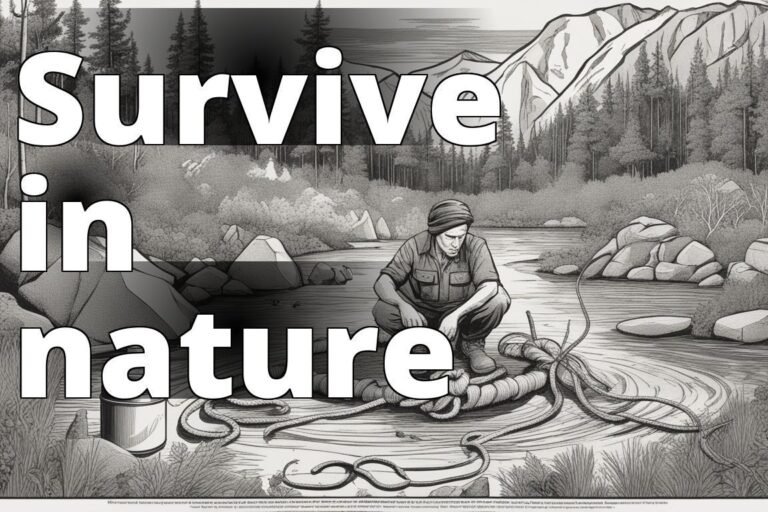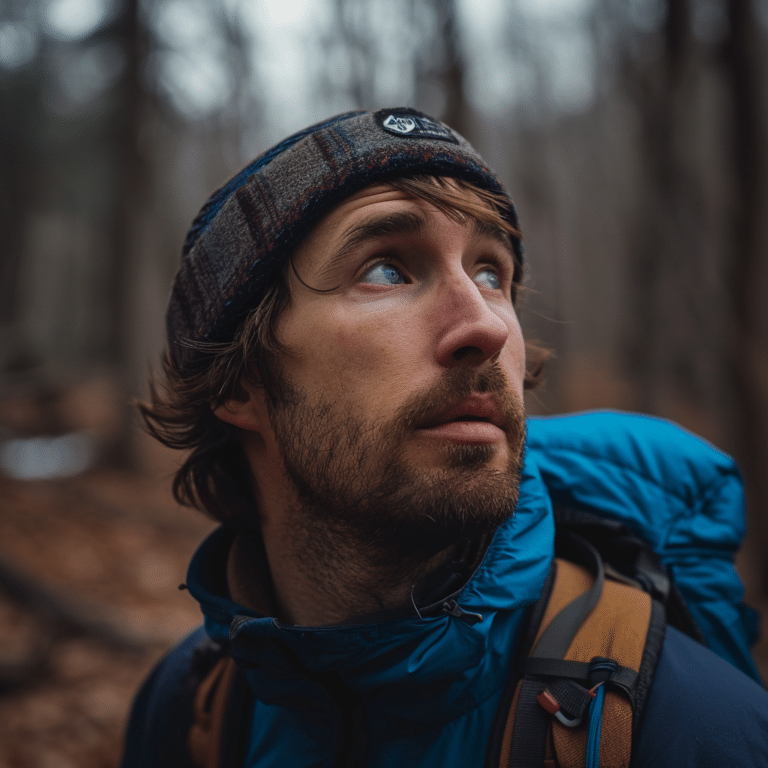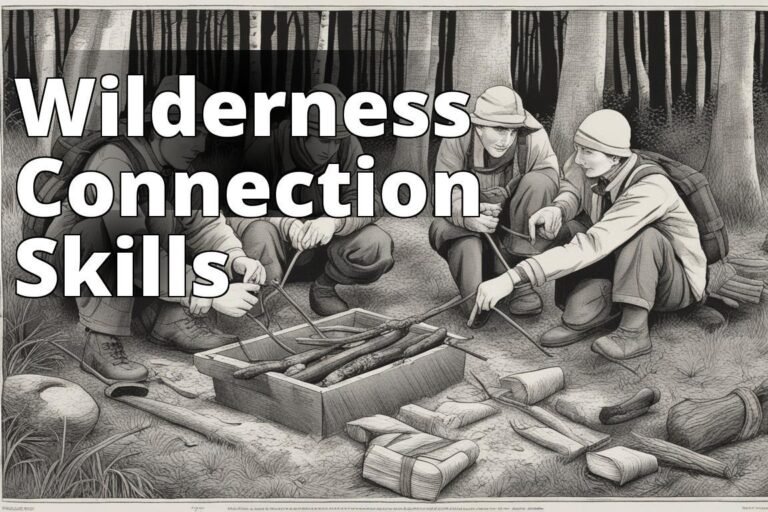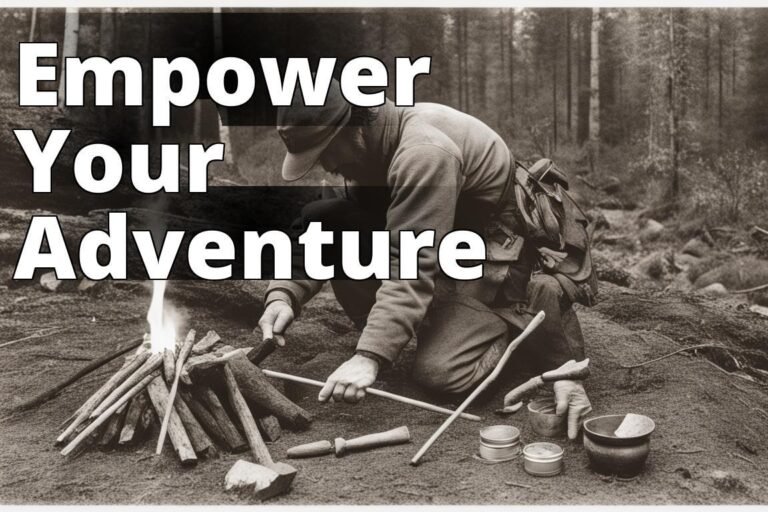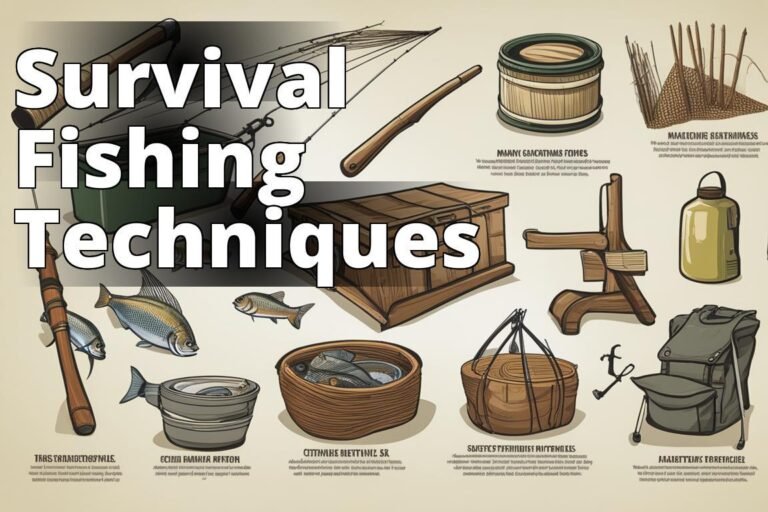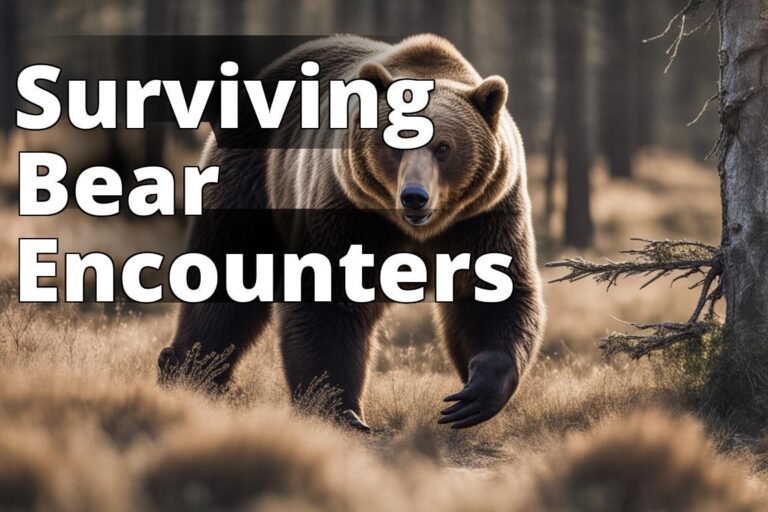10 Basic Survival Skills You Need To Master
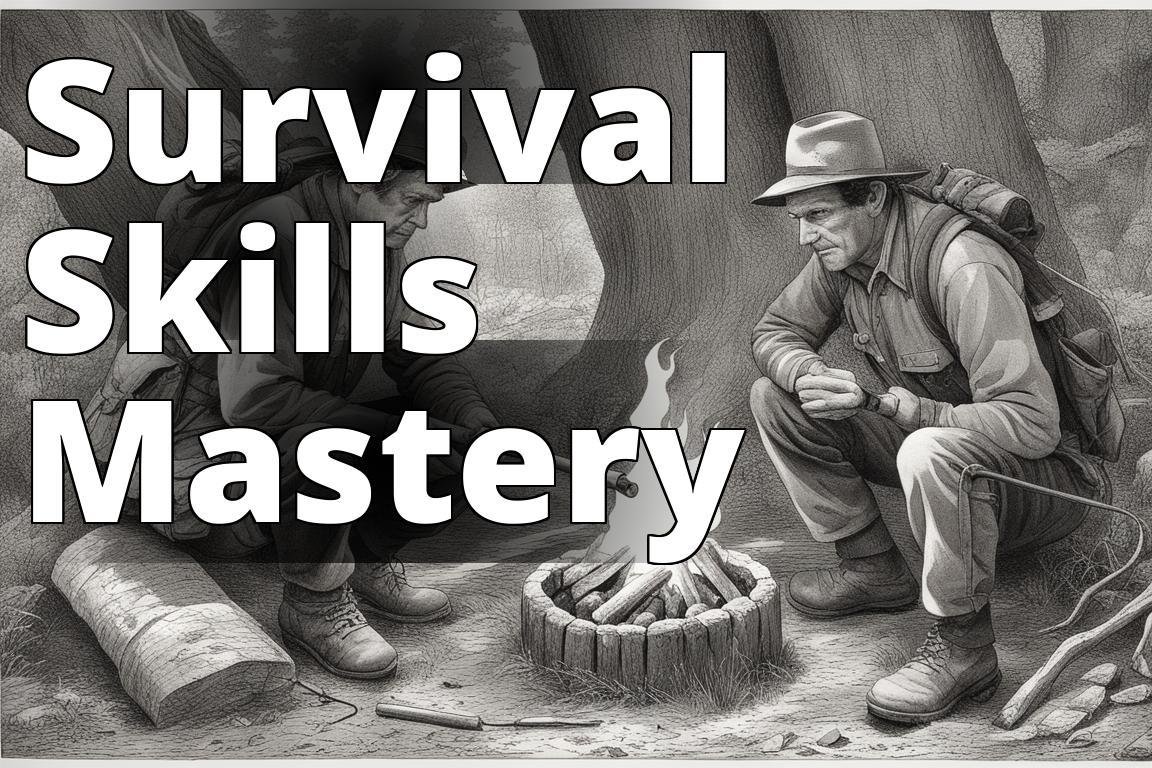
In the embrace of the wild, where the stars outnumber the grains of sand on a beach, your survival hinges not on the gear stashed in your backpack, but on the skills nestled in the crevices of your mind. Bushcraft, a term that evokes images of rugged individuals mastering the wilderness, is not merely about surviving; it’s about thriving in nature’s bosom using a blend of knowledge, wisdom, and the will to persevere. As Seneca once mused, “It is not because things are difficult that we do not dare; it is because we do not dare that they are difficult.” Thus, armed with beginner bushcraft skills, let us dare to unveil the 10 basic survival skills you must master to ensure that when the sun dips below the horizon, you’re not just surviving, but reigning supreme over the night.
Beginner Bushcraft Skills
In this article, you will learn: – How to build a fire, find and purify water, find and cook food, build a shelter, signal for help, navigate, administer first aid, defend yourself, stay calm, and know when to stay put and when to move in the wilderness. – Basic techniques for survival in the outdoors. – Essential skills for a beginner in bushcraft.
1. Build a Fire
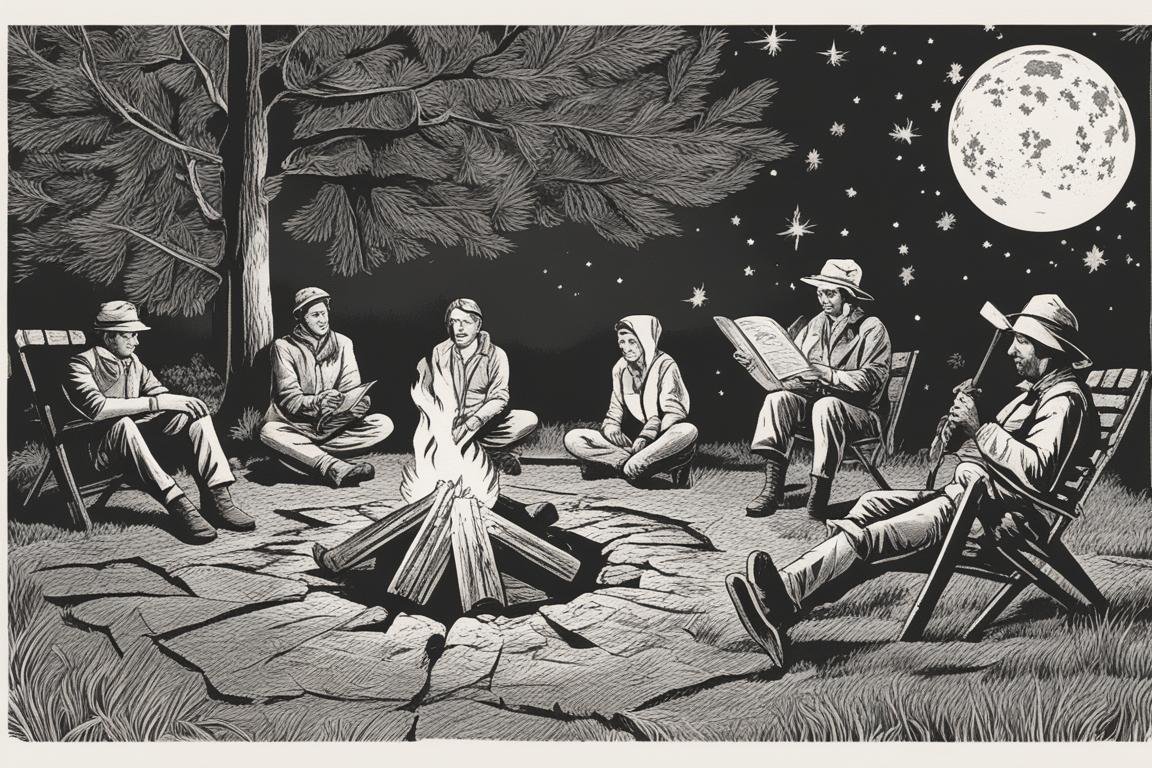
Fire, humanity’s first invention that truly separated us from the beasts, remains your best friend in the wilderness. It provides warmth, cooks food, purifies water, and signals for help. The ability to conjure fire from the bowels of tinder and kindling is nothing short of magic. Start with the basics: gather dry materials, create a small nest for your ember, and nurture it with gentle breaths until it claims its fiery dominion. Remember, patience is key. As you watch the flames dance, remember Thoreau’s words, “I went to the woods because I wished to live deliberately, to front only the essential facts of life.”
Insider Tip: Always carry a reliable fire starter, but also practice traditional methods like the bow drill or flint and steel. It’s not just about the fire; it’s about connecting with the primal skills of our ancestors.
2. Find and Purify Water
Water, the elixir of life, can be as deadly as it is essential if not properly purified. Finding water is the first step; look for natural collections or condensation. Once found, purification is critical. Boiling is the gold standard, but filters and chemical purifiers have their place in your arsenal.
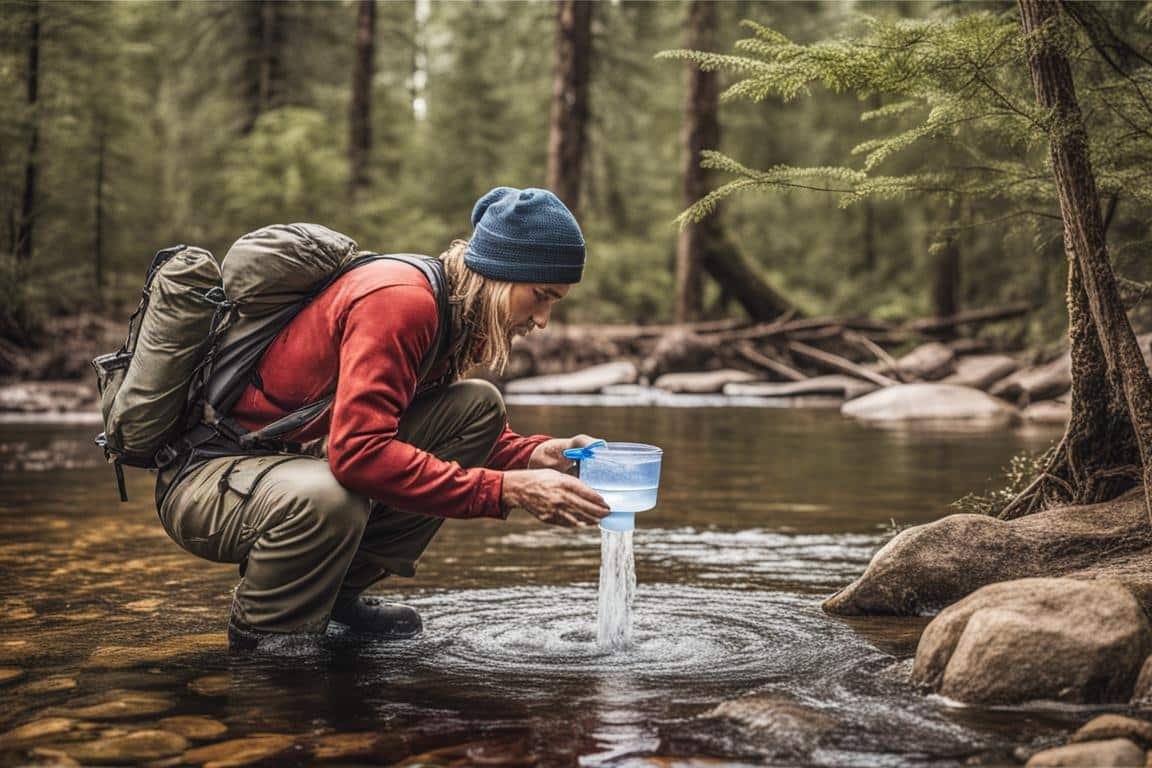
Insider Tip: Always have at least two methods of water purification. Technology can fail, and redundancy could save your life.
Learn more about water purification methods
3. Find and Cook Food
The wilderness is not a grocery store, but with the right knowledge, it’s not far off. Identifying edible plants and understanding the basics of trapping and fishing can turn the wilderness into a bountiful harvest. Cooking over an open fire is not just a skill; it’s an art. Remember, calories are your lifeblood out here. Make every meal count.
Insider Tip: Practice makes perfect. Start with simple recipes and work your way up to more complex meals as your confidence grows.
4. Build a Shelter
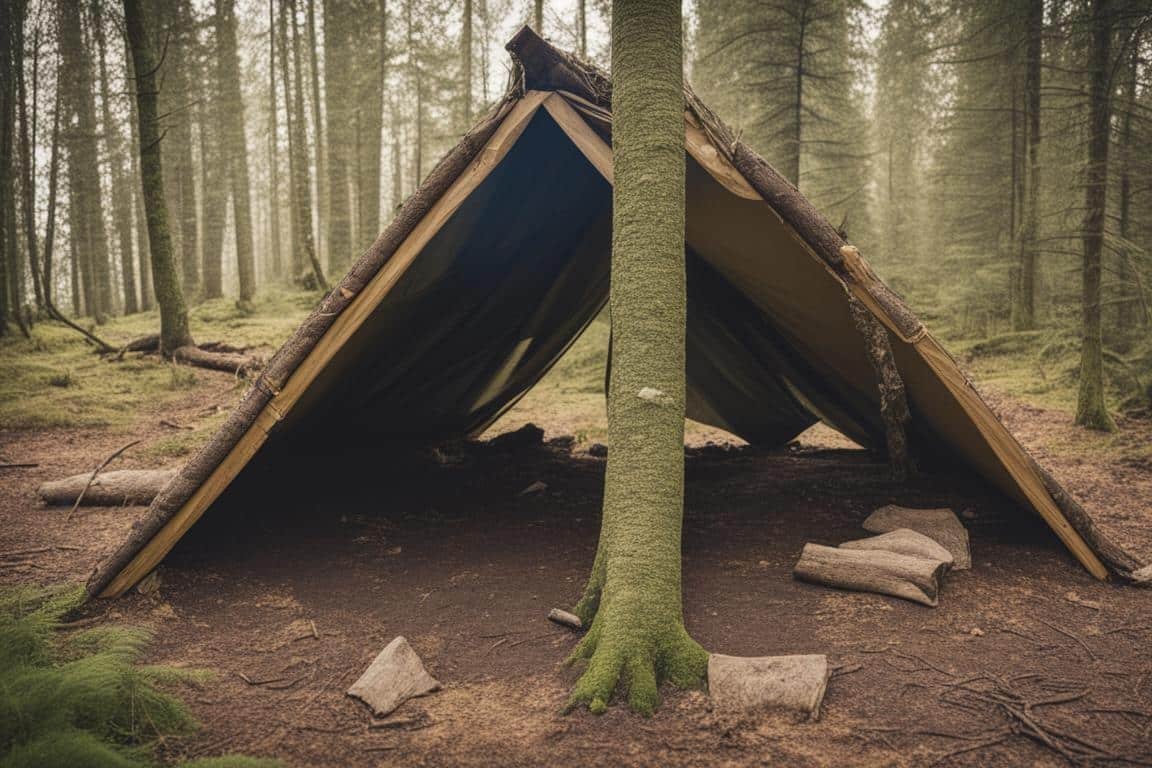
Your shelter is your sanctuary. It shields you from the elements and provides a much-needed psychological boost. The type of shelter you build will depend on your environment and the materials at hand. Whether it’s a lean-to, a debris hut, or a snow cave, the objective remains the same: insulation, protection, and minimal impact on the environment.
Insider Tip: Practice building different types of shelters in varying environments. Comfort in construction comes from repetition.
5. Signal for Help
In an emergency, being seen can mean the difference between life and death. Three fires in a triangle is the universal distress signal. Brightly colored clothing, mirrors, and whistles can also aid rescuers. Remember, it’s not just about signaling for help; it’s about signaling smartly.
Insider Tip: Always carry a whistle and a mirror. They are lightweight, take up minimal space, and can be lifesavers.
6. Navigate
The sun, stars, and natural landmarks are your compass in the wilderness. Understanding basic navigation techniques can prevent a misadventure from turning into a disaster. The ability to read a topographic map and use a compass is invaluable, but so is the wisdom to recognize the way back home by the moss on the trees or the direction of the flowing water.
Insider Tip: Practice orienteering in a controlled environment before testing your skills in the wild.
7. Administer First Aid
First aid is the bridge between an accident and professional medical help. Knowing how to treat cuts, burns, bites, and hypothermia can save your life or someone else’s. A well-stocked first aid kit is non-negotiable, but so is the knowledge to use it effectively.
Insider Tip: Regularly update your first aid training. Procedures evolve, and it’s crucial to stay informed.
8. Defend Yourself
The wilderness is home to more than just trees and tranquility; it’s also the domain of wildlife. While attacks are rare, knowing how to make yourself less of a target and how to react if confronted can prevent a dangerous encounter from becoming a deadly one.
Insider Tip: Make noise while moving through bear country, and know how to use bear spray. Prevention is the best defense.
9. Stay Calm
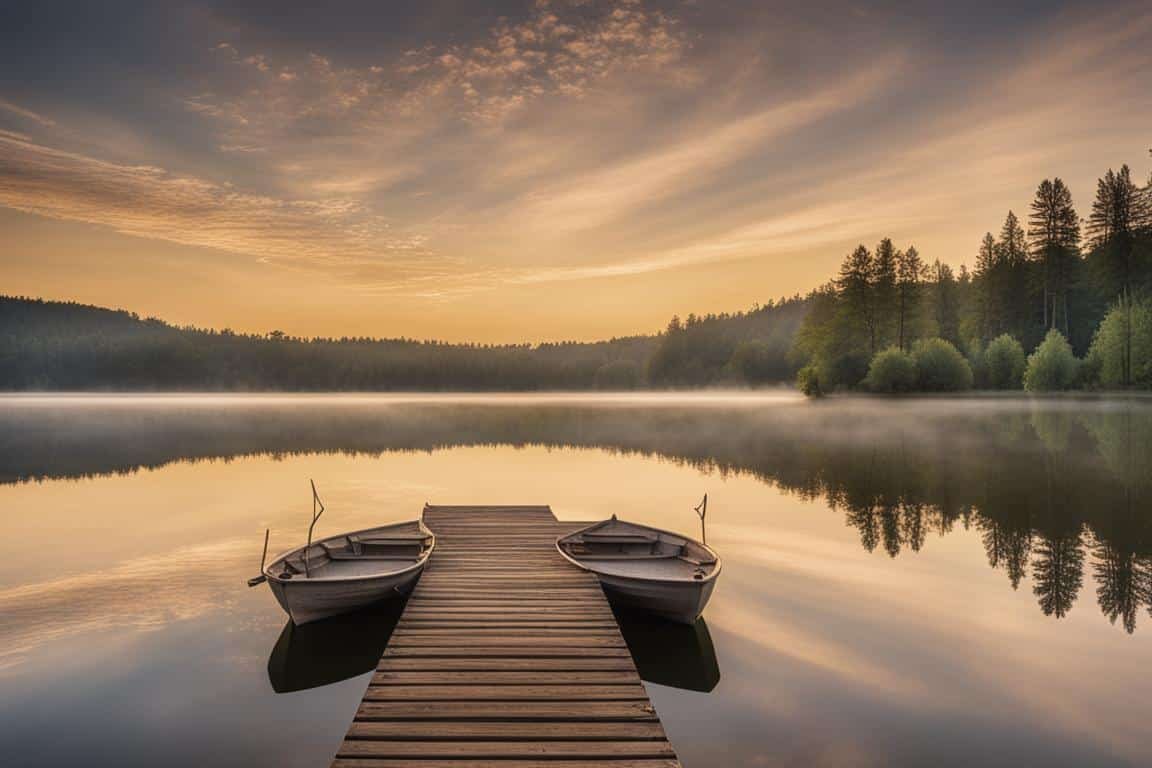
Panic is the enemy of survival. The ability to stay calm, think clearly, and act decisively can extricate you from the stickiest situations. As Marcus Aurelius advised, “You have power over your mind – not outside events. Realize this, and you will find strength.”
Insider Tip: Practice mindfulness and stress-reduction techniques. Survival is as much a mental game as it is physical.
10. Know When to Stay Put and When to Move
Sometimes, the best action is inaction. Staying put can make you easier to find if you’re lost, but knowing when to self-rescue is equally important. This decision should not be made lightly and must be based on a realistic assessment of your situation and resources.
Insider Tip: If you decide to move, leave clear, unmistakable signs of your direction of travel.
Conclusion
Mastering these 10 essential bushcraft skills doesn’t just prepare you for a night under the stars; it equips you with the tools to face life’s unpredictabilities with confidence and poise. The wilderness teaches us invaluable lessons about ourselves and our capabilities. It strips away the superfluous, leaving only the essential, the real. In the words of Seneca, “Fire tests gold, suffering tests brave men.” May your forays into the wild not only test you but refine you, leaving you better, braver, and wiser.
Remember, the best way to stay safe is to be prepared. These skills are your armor and your compass in the great outdoors. Equip yourself with knowledge, and the wilderness will become not just a place to survive, but a place to thrive.
Prepare for your next adventure with the best portable lightweight camping stove.
Continue exploring the art of bushcraft and survival by checking out more resources on backcountrytrax.com:
- /reasons-to-learn-bushcraft-skills/
- /how-to-survive-lost-in-the-wilderness/
- /why-you-should-learn-outdoor-survival-skills/
- /why-you-should-know-emergency-survival-skills/
- /best-lightweight-camping-utensils/
- /why-you-should-be-self-reliant-in-the-outdoors/
- /survival-tricks/
- /exploring-the-outdoors-with-your-cat/
- /best-hand-warmers-for-hikers/
- /best-portable-lightweight-camping-stove/
Answers To Common Questions
Who can benefit from learning beginner bushcraft skills?
Anyone interested in outdoor survival and wilderness exploration.
What are some essential beginner bushcraft skills to learn?
Fire-starting, shelter-building, and foraging for food are key.
How can I start learning beginner bushcraft skills?
You can start by reading books, watching tutorials, and practicing in safe environments.
What if I don’t have much outdoor experience?
Beginner bushcraft skills can be learned gradually, starting with basic techniques.
What are some common mistakes to avoid when learning bushcraft skills?
Rushing into unfamiliar techniques without proper guidance can be risky.
How long does it take to become proficient in beginner bushcraft skills?
Proficiency comes with practice, so it varies, but dedication pays off.



